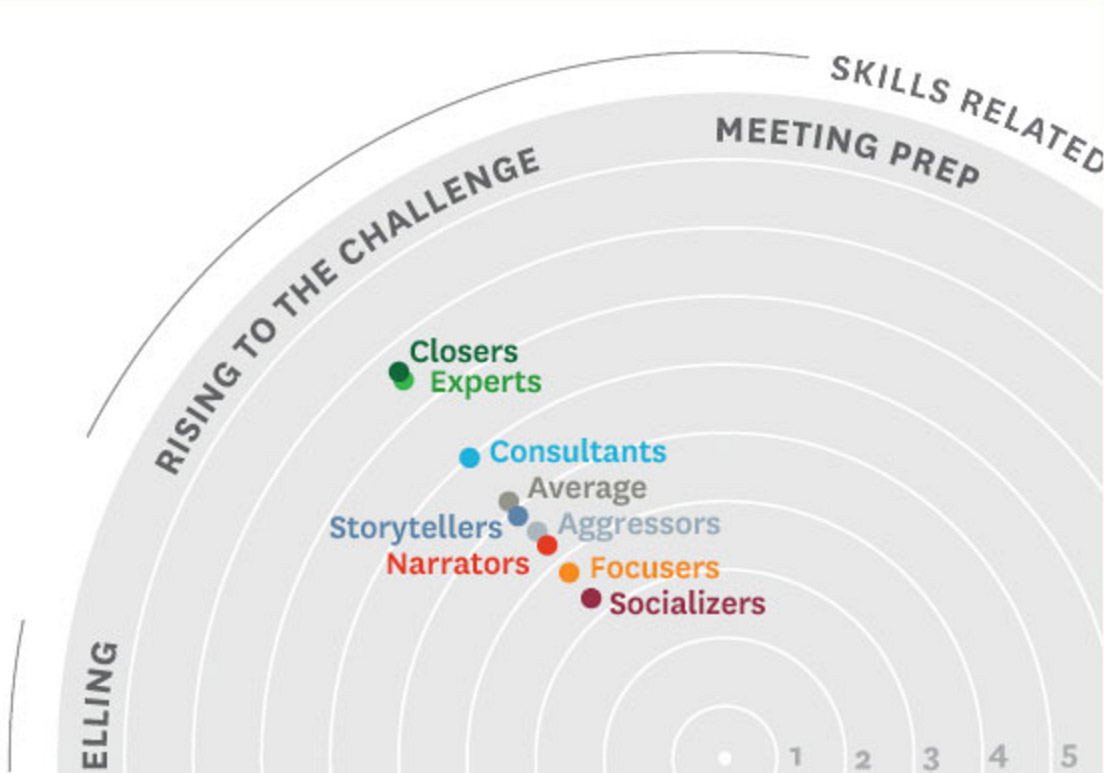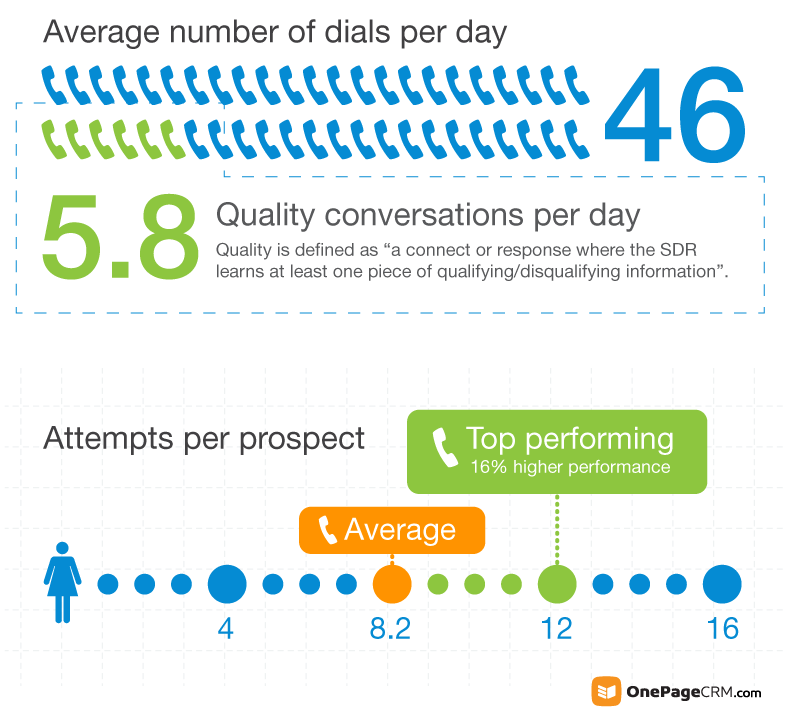
10 tips & interview questions for hiring the right salesperson

Hiring the right salespeople is crucial for your business success.
$563,500.
That’s the cost of a salesperson mis-hire, according to research by Dr. Brad Smart of Topgrading Inc., a firm that helps companies assess sales candidates.
“Based on our studies, the average cost of a mis-hire can be six times the base salary for a sales rep, 15 times base salary for a manager, and as much as 27 times base salary for an executive.”
Not to mention the less quantifiable damage to team morale and culture.
But how do you identify a great sales hire?
How to hire the right salesperson?
The job description matters.
Carefully reviewing job applications also matters.
Coming to interviews with an open mind and clear intention does matter too.
We all know that.
Nonetheless, you can have a spotless job description, a thoughtful approach to CV reviews, and a good rapport during interviews — and still find yourself asking the question: “How do I hire the right salesperson?”
It’s not a black-or-white decision.
Not all salespeople come from the same aggressive ABC (Always Be Closing) mold. I have seen the brash, type A, Alec Baldwin-type characters loudly wining and dining clients. And I have seen one of the best salespeople ever who would come across as introverted, mild, and shy but would kill it at sales.
Both extroverts and introverts possess characteristics that contribute to their success in sales.
In fact, the Wharton School of Business found that ambiverts, individuals who fall roughly in the middle of the extraversion and introversion scale, are the most successful salespeople.
This is not only applicable to the old dilemma of extroverts vs. introverts. There are loads of different qualities that businesses see desirable in salespeople but they don’t necessarily predict their performance.
Besides, candidates have also done their homework. They often display traits that companies expect them to show—which makes the hiring process even harder.
So how do you find the right salesperson?
In this post, instead of talking about the importance of the job description, we focus on one of the most valued skills in life and business: the importance of asking the right questions.
Here’s a list of questions that you might want to ask yourself and your candidates before deciding on the perfect fit for your company.
How to find a great salesperson?
Hiring salespeople can get tricky. They are good at talking and interviewing. They are charming and know how to say what you want to hear.
Here are the tips and strategies you can use to determine whether a salesperson is a good match for your business.
1. Find out if they have a growth mindset
A great salesperson is willing (and has the ability) to listen, learn, and quickly adapt.
Mark Roberge, senior lecturer at the Harvard Business School and author of The Sales Acceleration Formula, ran an experiment while running sales at HubSpot.
He tracked specific attributes of people interviewed and hired and measured over time which of these attributes actually correlated with success. After 1,000 interviews and hiring more than 60 people, he found that coachability was the best predictor of sales success at HubSpot.
According to Forbes, “coachability is the combination of the mindsets and behaviors for continuously integrating feedback to drive growth and change within ourselves.”
When scanning their CVs, consider looking at their achievements and if you can recognize or see any indications of a growth mindset. Having people with a growth mindset on your team is a sure way to success.
Besides, people with a growth mindset are able to overcome internal reluctance. For example, many salespeople might struggle with making cold calls. This can be for a variety of different reasons and can hit the best of salespeople at some point in their career. The net result is the same, less calls = less sales.
When hiring a salesperson, try to find out how they act in a situation where they are required to exercise willpower. Do they sound excited or discouraged? Do they embrace challenges or run away from them?
Having a growth (or problem-solving) mindset means salespeople will not be intimidated by restricted access to a prospect, big job titles, and gatekeepers. They always look for ways around. People who are really good at solving problems go about it systematically. They have a way of placing the problem in context.
Finding out their mindset will also help you see what motivates and drives them and creates a sense of urgency for them.
Interview questions to find out whether a salesperson has a growth mindset:
- “Tell me about a time when you knew you were right but you still had to follow directions.” — and any other variations of this question.
- At the end of the interview ask “How do you think you did?” This shows how self-aware they are, which has proven to be a strong success factor in sales. Then give your feedback. This gives you a chance to see how the candidate takes feedback and how coachable he/she is. In their second or third stage interview do they demonstrate taking on your feedback and addressing any issues?
- “How do you stay up to speed on the news and trends in your industry?”
- “What books or blogs have had the most impact on your sales career? What have you put into practice?”
2. See how they approach complex problems
The sale is not about the salesperson. It’s about the customer on the other end of the phone or video call.
That’s why salespeople need to have highly developed analytical skills. You can test them by seeing if they can break down complexity. This can predict whether they are capable of teaching your potential and existing customers how to get the most value out of your product or service.
All the market and product knowledge in the world is useless if you cannot explain it simply for a prospect to understand.
Great salespeople take complex strategies and simplify them into key messages and action items, that a prospect can follow and feel in control of. This usually involves dropping all the jargon and acronyms from your marketing material.
When looking at their CV, pay attention to the projects or accomplishments that they list there. Do they look like people who take on difficult challenges and persist until they succeed?
Possible interview questions:
- Sales author and podcast host Andy Paul suggests, “Ask them to tell you the story about: why they want to move, mistakes they made, etc. Explicitly use the word ‘story.’ If they can’t tell a story, then that’s a red flag.”
- “Explain something to me”. Perhaps the last product they sold or the market they sold to.
3. Test how they handle adversities
Sales go hand in hand with objections and rejection. Both are an integral part of working in sales.
In the Harvard Business Review, a study based on a survey of live salespeople and their meetings found that of eight common types of salespeople, only three were effective.
Overcoming customer objections on the fly was the skill that all three of the “good” salespeople excelled at, setting them apart as the most effective. The researchers called this ‘Rising to the challenge’.

The skill that set apart the most effective salespeople from the rest was their ability to handle customer objections. The best salespeople were able to think on their feet and work through their customers’ objections.
A great salesperson might also prevent objections from happening in the first place, by determining the needs of the customer by asking Situation, Problem, Implication, and Need-Payoff questions as outlined by author Neil Rackham in his bestselling book the SPIN Selling strategy.
Handling objections is no less important than being able to deal with rejection.
“I’ve missed more than 9000 shots in my career. I’ve lost almost 300 games. 26 times, I’ve been trusted to take the game-winning shot and missed. I’ve failed over and over and over again in my life. And that is why I succeed.”
No matter how good a salesperson is, they are going to have misses. They’re going to hear a lot of NOs before they get a YES.
Great salespeople are able to separate themselves from that rejection and keep going. For them, the glass is always half full and each no is bringing them closer to a yes.
The Harvard Business Review noticed an interesting correlation. Over 85 percent of top salespeople played an individual or team sport in high school.
Come win or lose, it demonstrates a motivation to keep going back for more and keep fighting.
The Bridge Group report on high-performing sales teams found that sales development reps make on average 46 calls a day but only have 5.8 quality conversations with prospects.

When hiring a salesperson, you want to make sure that they have the grit and persistence needed to succeed even in the face of adversity. This is especially true when it comes to follow-ups. One of the biggest failings in sales is simply not following up with leads.
Possible interview questions for hiring the right salesperson:
- “Tell me about a time when you had to think on your feet when a sales proposal was not going your way?”
- “How do you typically evaluate the needs of your customer when you first meet them?”
- “Tell me about a recent sale you lost. What happened and what did you learn from it?”
- “Tell me about a game or sports match you lost. Or a time when a situation didn’t turn out as you expected?”
- “How would you approach a situation in which a qualified prospect is not answering your email?”
- “How many times would you reach out to a prospect if they were not replying to your calls/emails?”
4. Pay attention to their communication skills
Being good at communication (both written and verbal) is an important skill for any successful salesperson. According to research from Harvard Business Review, clear communication is often what separates the strongest sales reps from those who miss their quotas.
To find the right salesperson, you need to assess several communication skills:
- Written communication (outreach emails, follow-up messages, LinkedIn comments, etc.).
- Approach to internal communication (between teams).
- Asking questions vs. dominating conversations.
- Listening.
Asking questions gets the prospect engaged in the conversation. Getting people to talk about themselves is a great way to get them to open up and be receptive to any offer you have. Does the salesperson ask you to explain your questions? Do they try to dig deeper to understand what type of information you are looking for or do they jump in and just keep talking?
It is not an easy, or natural process for some people, but great salespeople must be able to hold the silence. Not jump in and fill it with their voice, but let the prospect do it and listen carefully.
To connect with a prospect a great salesperson needs to be genuinely curious about their product, customers, their customers’ customers, and the market and industry they operate in. One research by Penn University found that curious people are often above-average listeners and conversationalists.
In conversations, top salespeople can allow for measurable periods of silence in conversations with prospects. This creates an opportunity for the prospect to consider what has been said rather than having to process the next piece of data given by the sales rep.
During the interview, try giving your candidates a bit of silence (when appropriate). Do they jump in to fill the space or do they wait for you to talk? Also, pay attention to what kind of questions they ask. Do they lead you to open up and speak your mind?
The right hire will be able to recognize and take into account social cues.
Good communication goes well beyond how salespeople communicate with external stakeholders.
The internal conflict between sales and marketing is pretty much a business cliché at this point. A great salesperson realizes everyone is in it for the long haul and working together will make everyone’s job easier.
High-performance salespeople provide feedback to all aspects of their organization (i.e. R&D, Marketing, Legal, etc.) to ensure products and services align better with the market and industry.
Possible job interview questions:
- Ask the salesperson to write an outreach email to a sample prospect to asses their written communication skills.
- Or even before you meet them, you can use the candidate’s cover letter for the position.
- “What’s your take on collaboration within a sales team?”
- “Give me an example of a team disagreement you’ve had. How did the team resolve the issue? What part did you play?”
- “What are some of your favorite questions to ask prospects?”
- “Can you about something that you consider true which most people believe is false?” (see whether they can be convincing)
5. Discover whether they are self-organized
You’ve probably heard this multiple times: the world of sales is chaotic.
Well… To be honest, the whole world around us is chaotic. Uncertainty and constant changes make the chaos even more palpable. That’s why you need to make sure that the salesperson you’re hiring is capable of dealing with chaos, has structures in place, and understands the importance of a sales process.
Salespeople have to juggle a lot of different tasks. They are managing a large number of leads with multiple touchpoints and multiple stakeholders across a long sales cycle. There is no way to manage that effectively without a good sales process. What’s more, if you are not measuring that process you are unable to iterate and improve it.
Ideally, you want to hire a salesperson who’s not only process-driven but understands metrics and their importance. Good salespeople strive to deliver.

When hiring a salesperson, pay attention to whether they can adopt multiple perspectives. In physics, chaos is associated with a complex system that has many different sides and features. Good salespeople can recognize and distinguish these sides in a sale. This helps them excel at prospecting and also know when a prospect is not a good fit.
Possible questions during the job interview:
- “In your current role, what metrics do you use to keep on track and achieve goals?”
- “How do you organize your day, week, and year? Can you share examples?”
6. Determine if they are business-savvy
A good salesperson thinks about their customers but they are also good business people. That’s why they are comfortable talking about money.
In business, there is no room to dance around the topic of money or worse yet, avoid it. When hiring a salesperson, pay attention to whether they know how to get the prospect to talk about their budget. Knowing the budget helps determine if it’s a good fit.
Good salespeople also know that a business doesn’t exist in a vacuum so they do their best to understand the market. They look to understand what moves the needle for a client within that industry. It means having a view of the forest while walking around in the trees. It makes for a more consultative sell.
Moreover, a good hire is also someone who understands the roles different stakeholders play in a business. It is rare that a prospect they’ll be talking to is the sole and final decision maker.
If a new stakeholder/decision maker is discovered, a diligent salesperson will go back a few steps in the process, find out their motivations and problems, and ensure the solution also addresses their motivations before proceeding.
Possible questions during a job interview:
- “Can you tell me what salary you are currently on or what you would require for this position?” (approach to money conversations)
- “Tell me what you know about our clients and their clients.” (market understanding)
- “How do you find out who the main decision makers are?”
- “How do you ensure that each of their needs/interests are met?”
7. Find out whether they hold themselves accountable
Deals sometimes do not work out, despite your best efforts. A great salesperson accepts this and takes responsibility for their own deals. However, they are also proactive in improving the process for next time. They believe they are responsible for their numbers and are generally willing to do whatever it takes to achieve their goals.
Besides, many sales reps show up to sales calls and meetings totally unprepared. They show up not having done any research, tailored the presentation and material for the prospect or even set an agenda. This does not reflect well on them, your company, or your solution.
When hiring a new salesperson, ask them about your company (the company they are interviewing for), your business, your own role, and who you report to. You will discover pretty quickly if they have done their homework.
Possible questions for a job interview:
- “We all fail. Can you share your most recent failure? Why did you fail, and what did you learn from it?”
- “How do you research prospects and companies before calling them?”
- “What do you do to prepare for a sales call?”
8. See if they can prioritize effectively
Good salespeople have good time management skills and are smart about what they spend time on. The very best salespeople ensure the time they spend selling is on the right qualified leads and avoid wasting time on bad (or non-existent) deals.
Plenty of salespeople cannot close deals because they were never qualified in the first place.
According to author Mark Hunter “The Sales Hunter”, “A common thread among top performers is their ability to use the first 30 minutes of the day effectively. What is interesting is when you use the first 30 minutes of the day effectively, it’s amazing how much more effective you are the rest of the day.”
Great salespeople do not just manage their own time but that of their prospects as well. They understand the prospect’s timeline, the stakeholder’s timeline, and the steps to progressing and hopefully closing a deal. This way they can identify when a deal is going south and pull it back on track. Or drop a deal if it dies.
Being time-focused means being focused on outcomes, not busy work.
Possible questions for a job interview:
- “List out the tasks you do in your typical day and rank them according to the return you get.”
- “Define a high-value prospect.”
9. Check how they treat information
To make a well-informed decision, you need… well, information.
Over half of high-performing salespeople are power users of their company’s CRM compared to less than a third of underperforming salespeople.
Having a process and a framework for following up ensures leads and deals are never dropped. This is the core methodology behind Next Action Sales method and why users of OnePageCRM report up to 50% more closed deals as a result.
When hiring a salesperson, pay attention to how they treat information, one of the most valuable assets in the business world.
Possible questions for a job interview:
- “What types of customer relationship tracking did you implement in your past jobs?”
10. Find out how customers see them
To build a customer’s loyalty you first have to earn their trust and respect.
It is a natural reaction from new and existing customers and prospects to be constantly vigilant, watching for your company’s sales team to let them down.
Prospects are looking for a misalignment of the information offered with the core message and values of the organization. They are suspicious of offers and want to know if there is a catch. They will latch onto any inkling of doubt to justify their decision not to buy.
The other side is when you succeed in earning their loyalty; they will fight tooth and nail to defend their decision to buy your solution because they don’t want to appear in the wrong. They become your biggest, loyal supporters and your best advocates.
A great salesperson will work to build rapport and trust and will come across as friendly and helpful. Pay attention to whether they’re genuinely interested in solving the customer’s problems. Try asking them to explain what your company does and the value of the product. After all, you are not selling the product: you are selling the value that your product (or service) provides.
Possible questions for a job interview:
- “What are three adjectives a former client would use to describe you?” (listen for synonyms of ‘helpful’)
Where to find the right salesperson?
- Prospect LinkedIn or other professional websites. The best salespeople are not always looking for a new job. You need to search them out on sites like LinkedIn or Xing and approach them.
- Use a recruitment firm for good old-fashioned headhunting. These firms specialize in finding top talent.
- Leverage your network. Put the feelers out with your network to keep an ear open for good people looking for new opportunities. Also, consider companies closing down.
- Use your team’s network. Same as point 3 but it multiplies out your potential network and increases the chances of finding someone good. You might also consider incentivizing these referrals.
Hiring great salespeople
If we lived in a perfect world, then it’d be easier to find a hire that ticks all the boxes. In reality, it rarely happens.
That’s why during every job interview pay attention to whether a salesperson has a growth mindset. If they do, they can learn and even teach themselves any skill that they might be lacking.
A great salesperson, with curiosity, will naturally learn the ins and outs of your industry, and they’ll do it quickly. Furthermore, candidates who don’t have experience in your industry or don’t fit the profile of an ideal hire can still bring new perspectives to your business.








